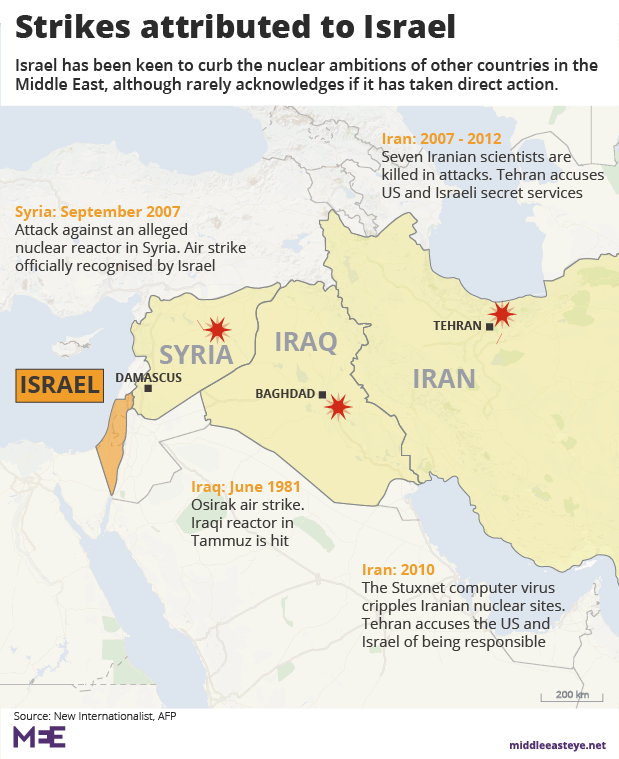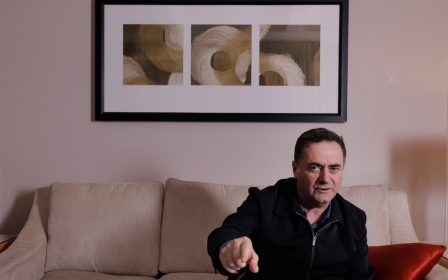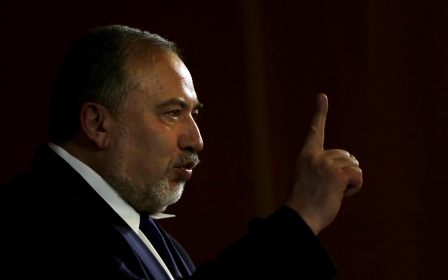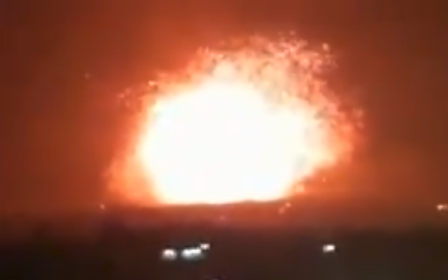Netanyahu: Iran deceiving the world about nuclear accord
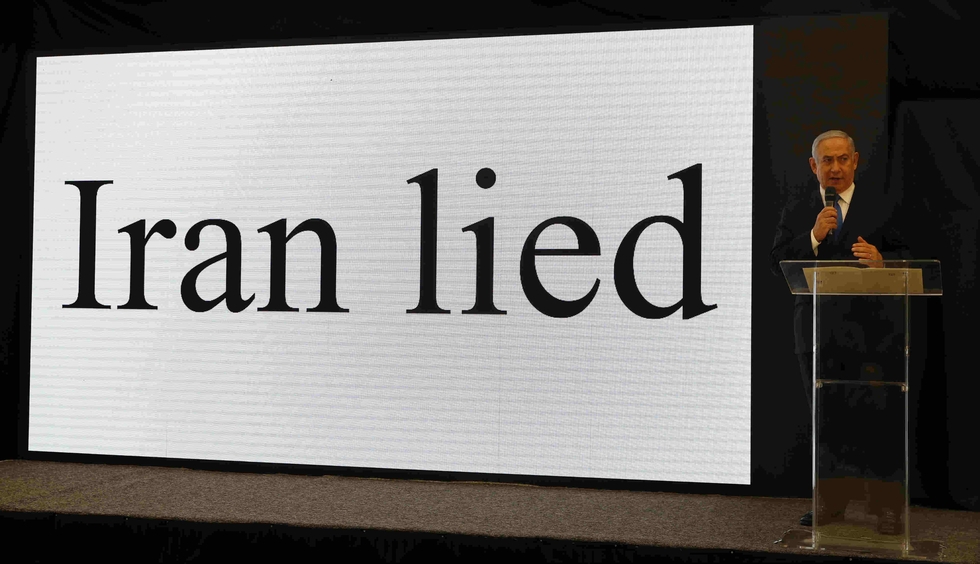
In a speech on Monday evening, Israeli Prime Minister Benjamin Netanyahu said his country had “conclusive proof" that Iran was violating the terms of an international nuclear agreement.
Following an emergency meeting of the Israeli security cabinet, Netanyahu said that the Mossad had uncovered evidence that Israel would share with the International Atomic Energy Agency (IAEA).
Unveiling a Powerpoint presentation on "Iranian lies and deceptions" in English, Netanyahu presented graphics and aerial photographs allegedly proving the existence of an Iranian plan entitled Amad aimed at developing nuclear missiles.
He said Israel had obtained tens of thousands of files "a few weeks ago in a great intelligence achievement," saying they had been moved to a secret compound in Tehran in 2017 that looked dilapidated from the outside.
The material obtained weighed a half a tonne, he said.
Netanyahu added that Iran had continued to expand said programme after 2015, and was "blatantly lying" about the programme's existence to the international community.
The Israeli premier has repeatedly called for a 2015 nuclear accord between world powers and Iran, Israel’s biggest rival, to either be altered or scrapped.
Netanyahu alleges the agreement does not prevent Iran from eventually obtaining nuclear weapons and says the lifting of sanctions has increased Tehran's ability to finance proxy militants in the Middle East.
The Israeli Knesset approved a bill on Monday that allows the prime minister to declare war in "extreme situations" with only the defence minister's approval, Haaretz reported.
US President Donald Trump is due to decide on 12 May whether to reimpose sanctions on Tehran, putting the 2015 accord in peril.
"I'm sure he (Trump) will do the right thing for the United States, for Israel, and for the peace of the world," Netanyahu said in his speech.
The White House said on Monday that Israel's new information "provides new and compelling details".
The French ambassador to Washington, Gerard Araud, tweeted that information about past Iranian nuclear activity was in fact an argument in favour of the nuclear deal, not against it.
A German government spokesman said it was vital to keep the independent inspections provided for under the deal.
Ahead of Netanyahu's speech, Iranian Minister of Foreign Affairs Javad Zarif derided the Israeli PM's announcement, referring to Netanyahu's 2012 speech in front of the United Nations General Assembly, during which he presented a diagram of a bomb.
Trump has called the nuclear accord the worst deal ever negotiated, and threatened to reimpose the US penalties unless Britain, France and Germany can fix its "flaws". The deal lifted economic sanctions on Iran in return for curbing its nuclear programme.
Most world powers, however, say the nuclear deal is working as intended for now and is the best way to keep Iran from acquiring the bomb.
The accord was at the centre of US Secretary of State Mike Pompeo's visit to Israel on Sunday and a telephone conversation between Netanyahu and Trump on Saturday, during which Netanyahu reportedly shared the Mossad's findings with the American president.
Pompeo has warned that the United States will withdraw from the agreement "if we can't fix it".
Netanyahu’s speech comes shortly after missile attacks on Syrian government-held airbases reportedly struck several arms depots in Hama and the Aleppo countryside, including some holding surface-to-surface missiles that Iran was preparing to deploy.
According to a monitor, the missile strikes killed 26 pro-Syrian government fighters, a majority of them Iranian.
Unidentified Iranian officials called reports of Iranian casualties in the attacks “baseless,” while the Israeli military said soon after the latest bombing raids that it did not comment on foreign reports.
However, the attacks, whose origins have yet to be confirmed, came after Israel bombed the T4 airbase in Syria in February and days after Israeli Defence Minister Avigdor Lieberman said Israel would attack Iranian assets in Syria if they were deemed a threat.
Damascus and Tehran also accused Israel on 9 April of conducting deadly strikes against a military base in central Syria.
Middle East Eye propose une couverture et une analyse indépendantes et incomparables du Moyen-Orient, de l’Afrique du Nord et d’autres régions du monde. Pour en savoir plus sur la reprise de ce contenu et les frais qui s’appliquent, veuillez remplir ce formulaire [en anglais]. Pour en savoir plus sur MEE, cliquez ici [en anglais].


